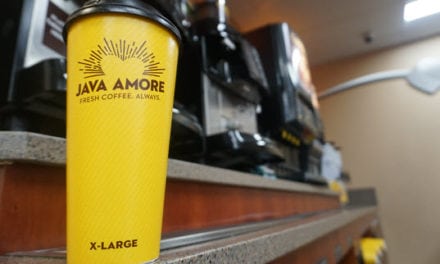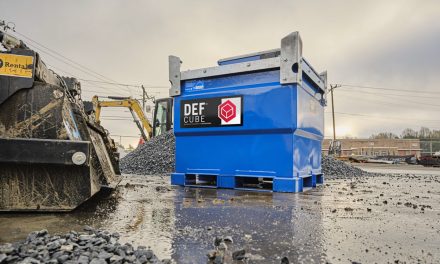By Roy Strasburger, President StrasGlobal
About once a week we receive a phone call that goes something like this: “I am the son/daughter of a family that own a convenience store. My mother and father started the business and have decided to retire. They have left it to me to run the business. The problem is that I don’t enjoy being a convenience store operator – it’s hard work. The store is profitable, and we don’t want to sell it. Can you help us?”
As you may know, our company, StrasGlobal, provides contract operations for owners of retail sites that do not want to do the daily operations themselves. Therefore, we are the go-to group for families in this type of situation.
This is a very emotional subject. Usually, the parents have spent countless hours and long days building and running a successful business. The store has provided a living and, usually, an education for their children. The parents’ identity is tightly interwoven with the business – in fact, the identity of the business and the family are often the same. The children feel bad because they do not want to follow in their parents’ footsteps, and they don’t want to lose the income that the store has generated. So, what are they to do?
There are three obvious options. The first is that the children continue running the store. This option often doesn’t work out because the son or daughter becomes resentful – feeling that they were forced into a career that they are not interested in. The store starts to suffer, and the parents become agitated that the sales and profitability are going declining. It is often a downward spiral.
The second option is to sell the business. The challenge here is that most owner/operators of stores can’t get what they feel is a “fair” price for the business that they helped to create and build. This isn’t to say that they have inflated the price – they just have a high expectation as to the return that they will get from the sale of an asset that they’ve put so much effort into.
The third option is to have someone else run the site for them. This can happen two ways: the first is that a non-family member is hired to manage the store instead of the children. What the owners often find is that this does not remove them from the day to day problems of store operations (people showing up for their shifts, inventory and cash loss, etc.) and that they (either the parents or the children) are still spending a lot of time in the store.
The second opportunity is to outsource the business to a professional operating company such as ourselves. It will cost a bit more, but we provide a professional operations environment, provide all of the accounting and financial reporting for the store, take responsibility for all employees and employee issues, and we are responsible for excessive inventory and cash loss at the site. After the operating costs and our fees are paid, the owner keeps all of the profits generated at the site.
So, in a nutshell, the owner of the business avoids all of the negative aspects of running a convenience store but gets to keep all of the financial upside (after costs and fees). The store continues to create a revenue stream for the family and the store remains a family asset that can be passed on to the next generation that wants to operate it.
In the meantime, the store is operated according to the owner’s wishes. We carry the product that they want and don’t carry product that they don’t want to sell. We use our buying power to get better prices for the items that are sold in the store and the owner determines the pricing strategy and how the store is presented to the public.
The transition from the original owner/operator to this format is often a delicate matter. We spend time talking with the owner and laying out a game plan that everyone is comfortable with. We talk about limits of authority and scope of decision making. We define the channels of communication and what the decision-making process will be. Once everyone is on board, then we proceed with an orderly transition from one operator to the next.
Often times, the owner wants to spend a lot of time in the store to make sure that the business is being handled the way “we’ve always done it”. This is completely natural and to be expected. Our job is to provide excellent customer service, maximize sales, and protect the business. In doing that, we often introduce new technologies, products, and strategies to the owner. It is up to us to prove to the owner the value of these new ideas, but it is up to the owner to decide whether he wants to implement them. Ultimately, the owner becomes comfortable with the way the business is being run and the time between visits becomes longer as we gain the owner’s trust.
To be completely open, this format does not always work. We have had instances where the owner decides that retirement is not really an option. Basically, the owner becomes bored and wants to have the daily stimulus of meeting people. At this point, it is our job to transition the business back to the owner as seamlessly as possible.
We have had a couple of instances where the owner, or one of the owner’s children, wants to become one of our employees. They want to be in the store every day, but they don’t want to have to make the decisions or deal with the headaches of managing people and vendors. We do our best to accommodate any type of scenario that the owner wants to pursue.
Ultimately, our objective is to help the business owner meet their strategic goals with as little hassle as possible.
 Roy Strasburger is the President of StrasGlobal. For 35 years StrasGlobal has been the choice of global oil brands, distressed assets managers, real estate lenders and private investors seeking a complete, turn-key retail management solution from the most experienced team in the industry.
Roy Strasburger is the President of StrasGlobal. For 35 years StrasGlobal has been the choice of global oil brands, distressed assets managers, real estate lenders and private investors seeking a complete, turn-key retail management solution from the most experienced team in the industry.









